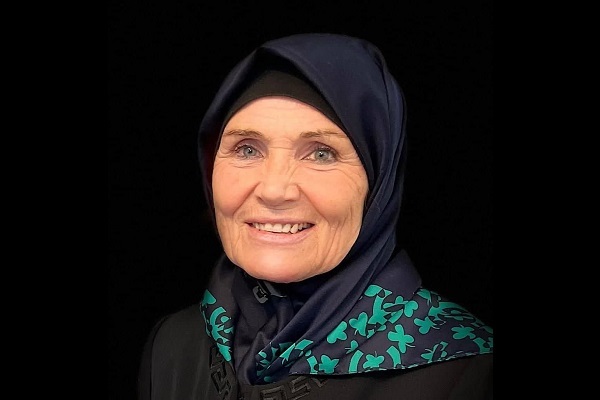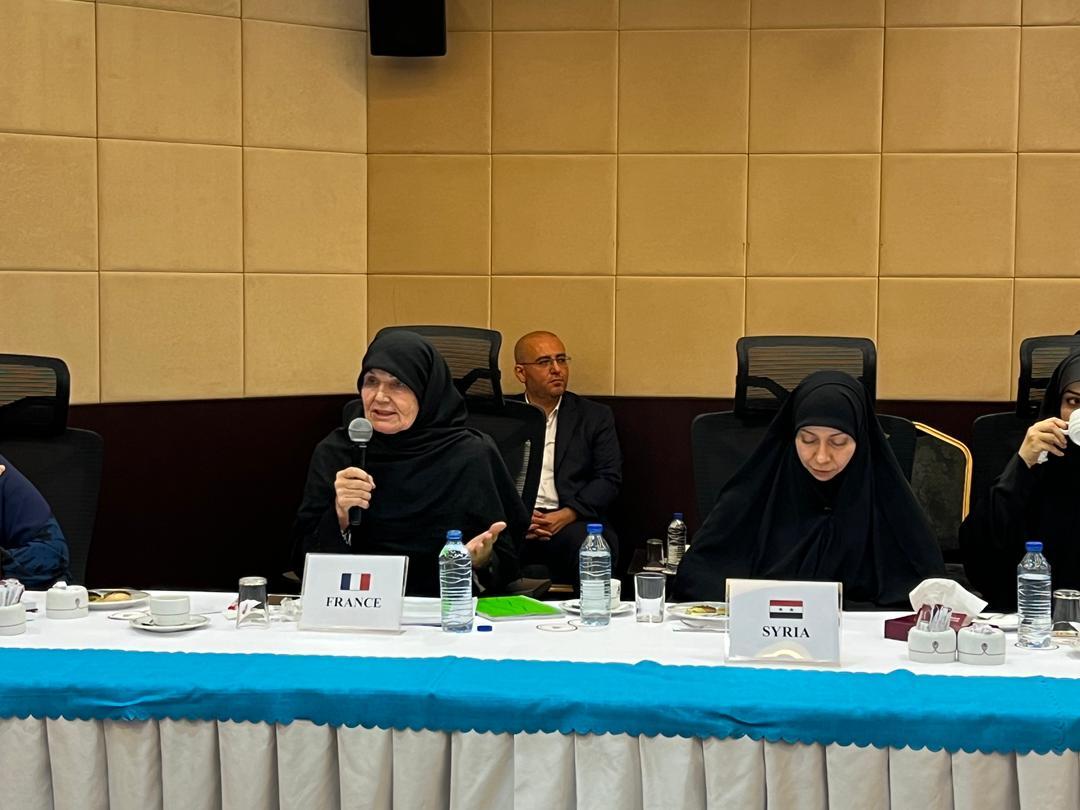Education for Resistance: An Imperative in the Face of Contemporary Challenges

Christiane Gilberte Guillaume delivered the article at the meeting of the female scholars entitled "The Educational Role of Women in Strengthening Unity and Resistance," held on Thursday on the sidelines of the 38th Islamic Unity Conference in Tehran. What follows is the full text of her speech:
In today’s world, education can no longer be confined to the mere transmission of knowledge. We live in an era marked by unprecedented social, political, economic, and technological upheavals. Children grow up in an environment where information flows at an unprecedented speed, social pressures are intensifying, and traditional values are often questioned. Faced with these challenges, education must prepare young people to resist, to develop critical thinking, and to stand up for what is right. However, this resistance cannot be effective without the instillation of the foundations of civic education: exemplarity, respect for oneself, respect for others (including parents and elders), and respect for the environment.
Faith: The Foundation of Resistance According to Imam Ali (AS)
Faith is indeed a fundamental pillar of resistance, and Imam Ali (AS) eloquently summarized the principles that support it through four essential pillars: endurance, conviction, justice, and jihad.
1. Endurance (Ṣabr): Endurance is one of the most important virtues in resistance. Imam Ali (AS) defines endurance through four aspects:
Enthusiasm: Having a strong will to overcome hardships and trials.
Fear: Consciousness of God (taqwa), which protects from inappropriate behavior.
Abstinence: Resisting worldly temptations and displaying detachment from material possessions.
Anticipation: Foreseeing the consequences of actions and being cautious in life’s challenges.

2. Conviction (Yaqīn): Conviction is a deep-rooted foundation of faith and resistance. It is built upon:
Prudent vision: Looking beyond the immediate and reflecting on the deeper consequences of actions.
Understood wisdom: Gaining insight and discernment from life’s teachings.
Lessons from teachings: Drawing from past events to gain enduring wisdom.
Tradition of predecessors: Relying on the accumulated experiences and wisdom of previous generations.
3. Justice (‘Adl): Justice is at the heart of virtuous action and respect for others’ rights. It manifests through:
Accurate understanding: Precisely understanding situations to avoid hasty judgments.
Deep knowledge: Clearly distinguishing between right and wrong.
Sound judgment: Making fair decisions grounded in reason and justice.
Great indulgence: Showing compassion and forbearance toward others.
4. Jihad: Jihad, in both its inner and outer dimensions, is a struggle to defend truth and justice. Its aspects include:
Enjoining good: Promoting virtuous values and behaviors.
Forbidding wrong: Opposing what is morally reprehensible and unjust.
Fighting with sincerity and firmness: Acting with conviction and consistency in the face of challenges.
Detesting excesses: Remaining vigilant against excesses and temptations that lead away from the straight path.
Imam Ali (AS) shows through these pillars that faith is not limited to belief but requires action and resistance to stand firm against injustice and oppression.
Exemplarity: The Foundation of Education
Every genuine education begins with exemplarity. Children primarily learn by observing. It is therefore imperative that parents, teachers, and adults in general embody the values they wish to transmit. Education for resistance must be accompanied by exemplary conduct in daily actions. How can a child learn justice, courage, or perseverance if those around them do not display these qualities? As the Quran says: "O you who believe, why do you say what you do not do?" (Surah As-Saff, 61:2-3).
Exemplarity in respecting rules, making just decisions, and treating others fairly is essential in shaping responsible citizens. By setting an example, adults pass on solid principles, thus enabling young people to resist the deviations and injustices they may encounter.
Respect for Oneself and Others: A Crucial Pillar
Education for resistance must be rooted in respect for oneself and others. Respect starts within the family, through the recognition of the value of elders, parents, and ancestors. The Prophet Muhammad (peace be upon him) said: "He who does not show respect to our elders and mercy to our young is not one of us." This statement highlights the importance of recognizing and showing gratitude to those who came before us and the need to care for and protect the younger generation.
Self-respect is equally fundamental. A child who learns to respect themselves, to care for their body and mind, will be better prepared to resist negative influences. This includes personal hygiene, emotional management, and the development of self-confidence.
Respect for the Environment: A Civic Duty
Respect for the environment is also an integral part of education for resistance and civic education. In a world facing ecological crises, it is essential to teach young people to respect and preserve nature. As the Quran says: "Do not spread corruption on the earth after it has been set in order." (Surah Al-A'raf, 7:56).
Critical Thinking: The Engine of Resistance
One of the key aspects of education for resistance is critical thinking. It’s not just about learning facts but understanding how these facts fit into broader dynamics. The Quran advises: "And do not pursue that of which you have no knowledge." (Surah Al-Isra, 17:36).
Self-Confidence and Resilience: Tools for Perseverance
But critical thinking alone is not enough. To resist, one must also have self-confidence. Resisting oppression, whether in the form of social pressures, unjust laws, or discrimination, requires belief in one’s own ability to act and influence the world.
Solidarity and Mutual Aid: The Strength of Community
Another essential component of education for resistance is solidarity. In the face of challenges, no one can resist alone. It is vital to teach young people that collective strength is far greater than individualism. Solidarity, mutual aid, and compassion for others are values that reinforce resistance to oppression. This begins within the family but extends to the community and society as a whole.
Conclusion: Educating for Resistance and Social Transformation
In conclusion, education for resistance, grounded in exemplarity, respect for oneself, others, and the environment, is essential for shaping responsible citizens. Exemplarity, respect, and critical thinking are powerful tools to help future generations positively and justly transform the world. It is up to us—educators, parents, and citizens—to ensure that this transformation is guided by justice, truth, and respect for fundamental values



